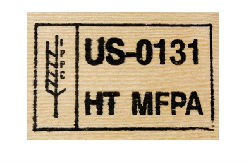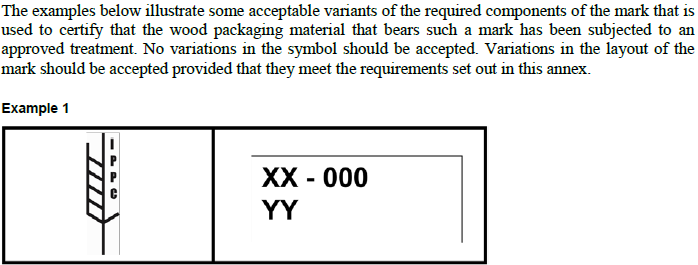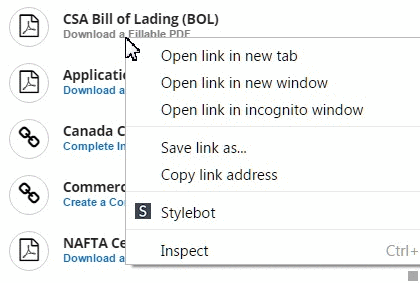Are You Using Wood Packaging?

If your cross border shipments are packaged or palletized with wood (pallets, crates, etc.), it is vital to ensure the wood packaging materials are properly treated (either heat treated or chemically with methyl bromide) and marked with the appropriate ISPM 15 stamp. Without this, US Customs may deny your shipment entry at the border.
What is ISPM 15 Certification
This is a US Department of Agriculture’s Animal and Plant Health Inspection Service (APHIS) initiative to decrease the risk of importing foreign insects and federal noxious weeds that may reside in wood packaging materials (WPM). US Customs will immediately force the export of noncompliant wood packaging material. This includes material that is incorrectly marked, unmarked, or marked but found to be infested with a live wood-boring pest or seeds. Product found to be shipped on unacceptable pallets also runs the risk of being destroyed.
Though all freight shipping cross border can be subject to inspection, those traveling on unmarked pallets have an increased probability of being denied. In the event of denied entry, additional charges will be incurred as a result of off loading or direct exportation.
We were also advised that properly marked pallets that are found to have the stamp faded, painted over or defaced may also be denied entry.

How CSA Minimizes Risk
At CSA Transportation we will do our best to be proactive in this initiative by conducting spot checks. If our spot checks discover that your product is being shipped on noncompliant foreign pallets we will exchange pallets on your behalf at an additional cost. However, CSA will not take responsibility for any charges incurred at the border due to your products being shipped on noncompliant pallets.
CSA does not have any choice in this matter but we are doing every thing we can to inform our clients and minimize their exposure to unnecessary charges.
For more information about the specific regulation please visit: https://www.ippc.int
